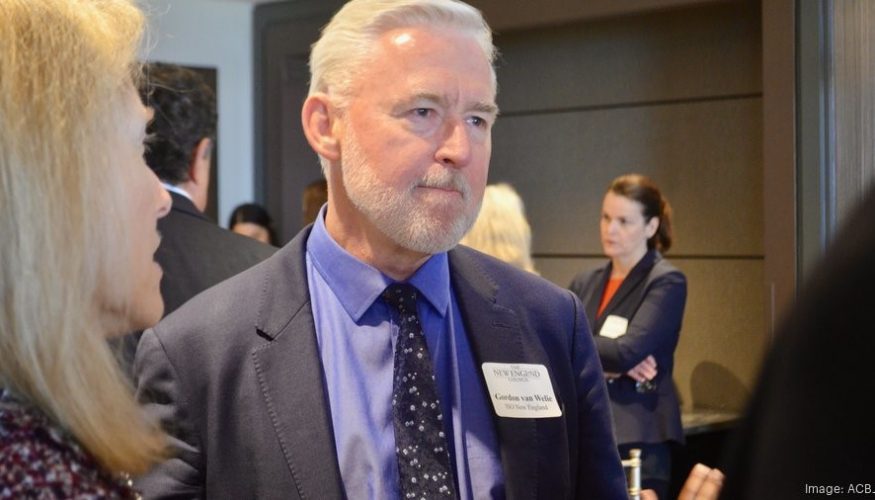ISO New England chief: Offshore wind “top priority” in region’s clean energy transition

By Mary C. Serreze, Boston Business Journal
New England has a “grand journey” ahead as the region transforms to a clean energy economy, according to the chief executive of ISO New England.
Gordon van Welie, CEO of the nonprofit that manages the six-state power grid, spoke Friday to members of the New England Council gathered at the University of Massachusetts Club in Boston.
“Over the next 15 years, the region needs to add almost twice as much new generation as it has in the past 25 years,” van Welie told the regional business leaders.
He discussed the ISO’s growing role in encouraging an energy system that’s aligned with state climate goals. It won’t be easy, he said, but the ISO is on board for the “odyssey” and its challenges.
When it comes to clean energy, he said, wholesale power markets — administered by ISO — are marked by “friction and externalities.” The ISO is charged with maintaining system reliability at the lowest market cost. The states, however, have set ambitious clean energy policies. Reconciling those at-times disparate goals will require changes in market design.
But such changes cannot be instituted without buy-in from the Federal Energy Regulatory Commission. The ISO is working on solutions such as demand response to relieve grid congestion, and changes to “capacity markets” — the mechanism that pays power producers to be available when needed.
There’s also the issue of incorporating clean energy capacity. Around 15 gigawatts of new offshore wind is looking to connect to the New England grid — which is currently an approximate 21-gigawatt system.
“We need to ramp up renewables,” van Welie said. “And offshore wind is identified as the most productive new resource for meeting load growth in the region, with interconnection into the system being a top priority.”
The transmission system must be “beefed up” significantly to incorporate renewables — a $20 billion to $30 billion proposition. “So there’s a huge investment in infrastructure needed to enable this,” he said.
More energy storage will be part of the solution. However, battery systems are not without technical problems, especially in the winter months, he said.
Even with more clean energy, fuels such as oil and liquified natural gas will still be need for a balanced and reliable grid, van Welie said — unless the promise of “green hydrogen” becomes a reality.
The four pillars of the transition are clean energy, balancing resources, energy adequacy, and robust transmission, the ISO chief said.
Van Welie said he’s keen on the idea of carbon pricing — that is, putting a price on energy production that creates greenhouse gas emissions, and incorporating that into a competitive wholesale power market.
“We are responding to the challenges,” van Welie said. “So there is a very ambitious set of market designs we are working on.”